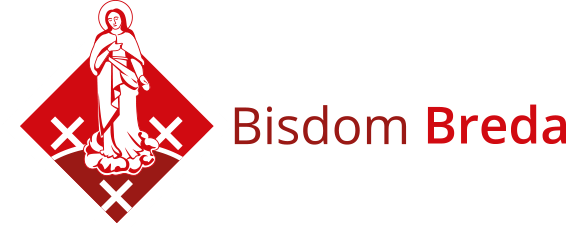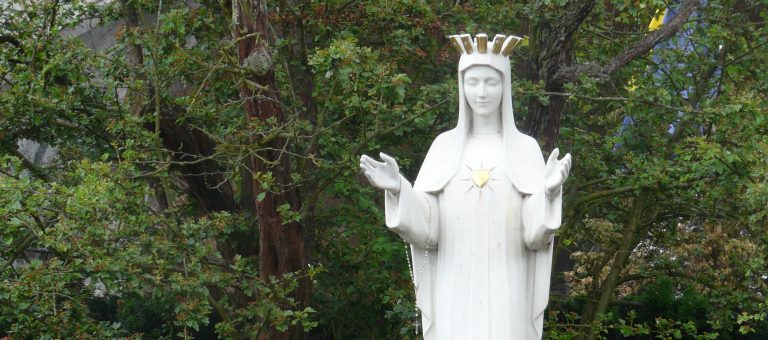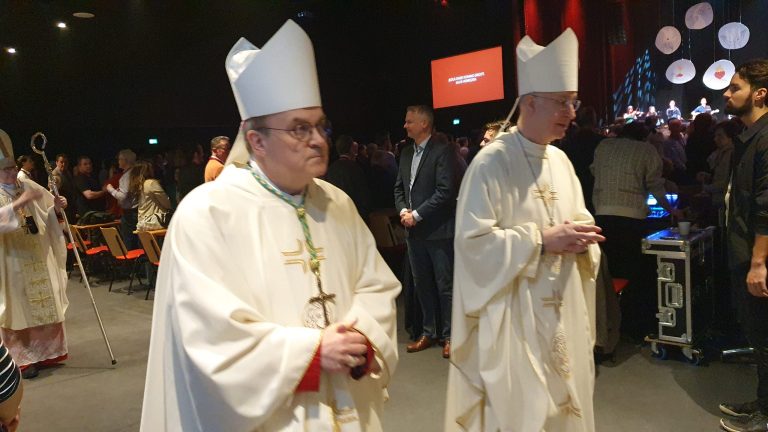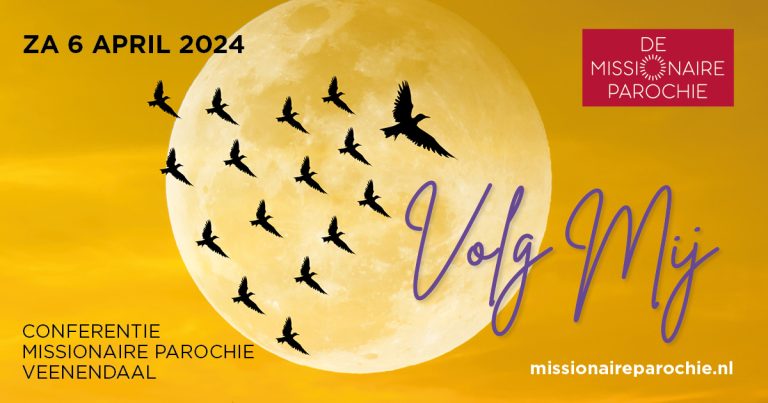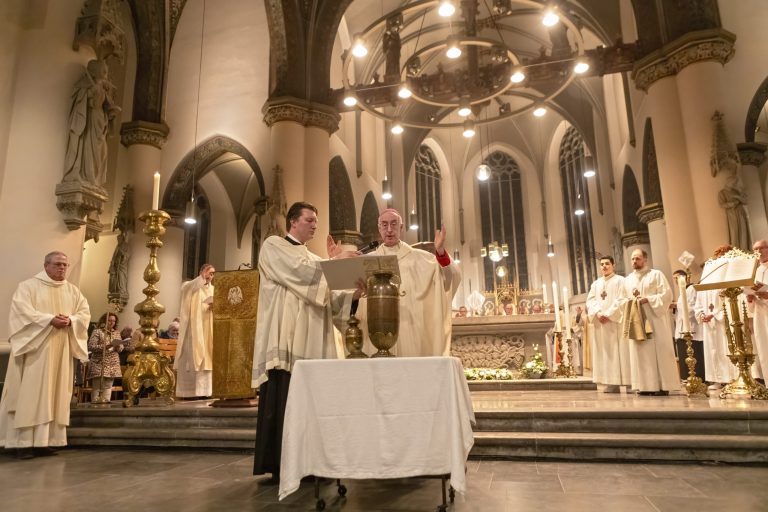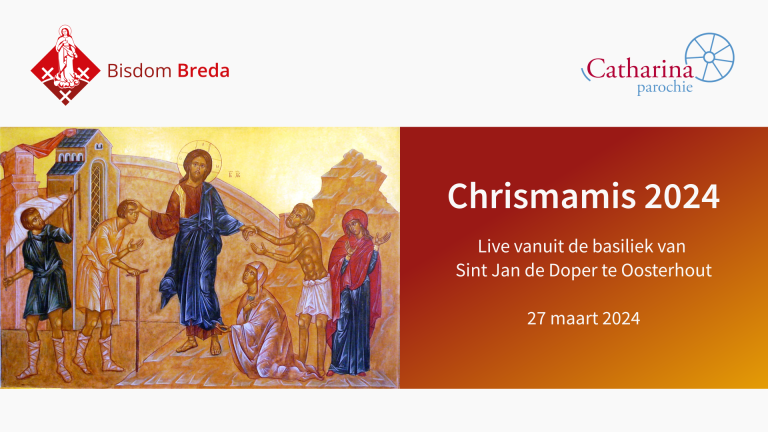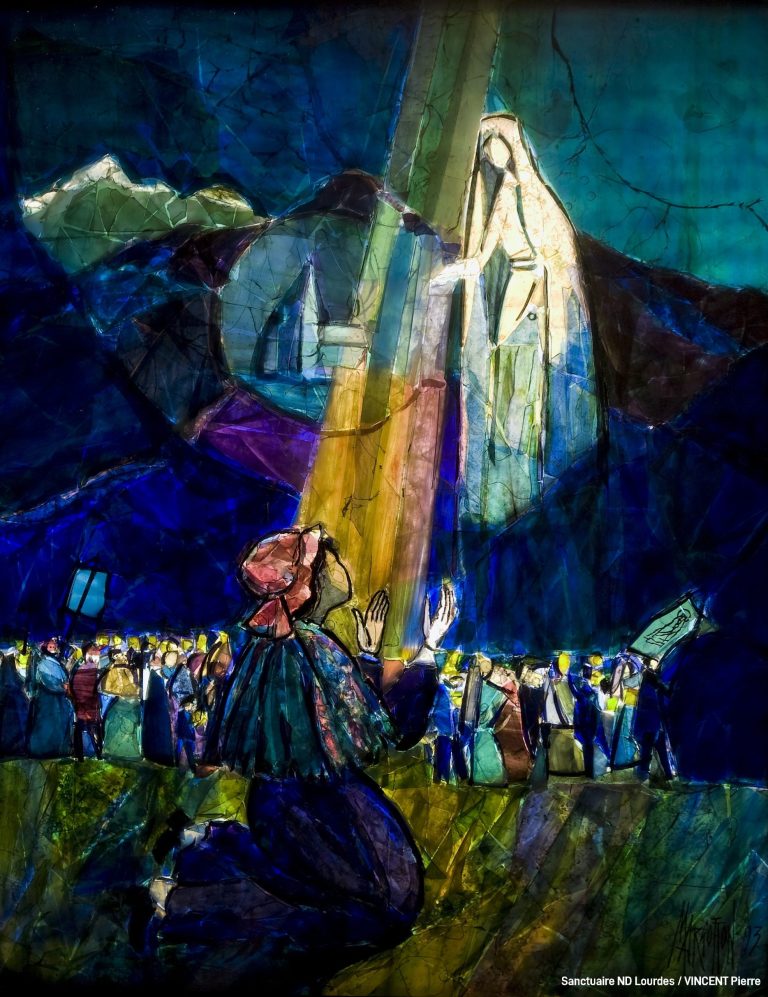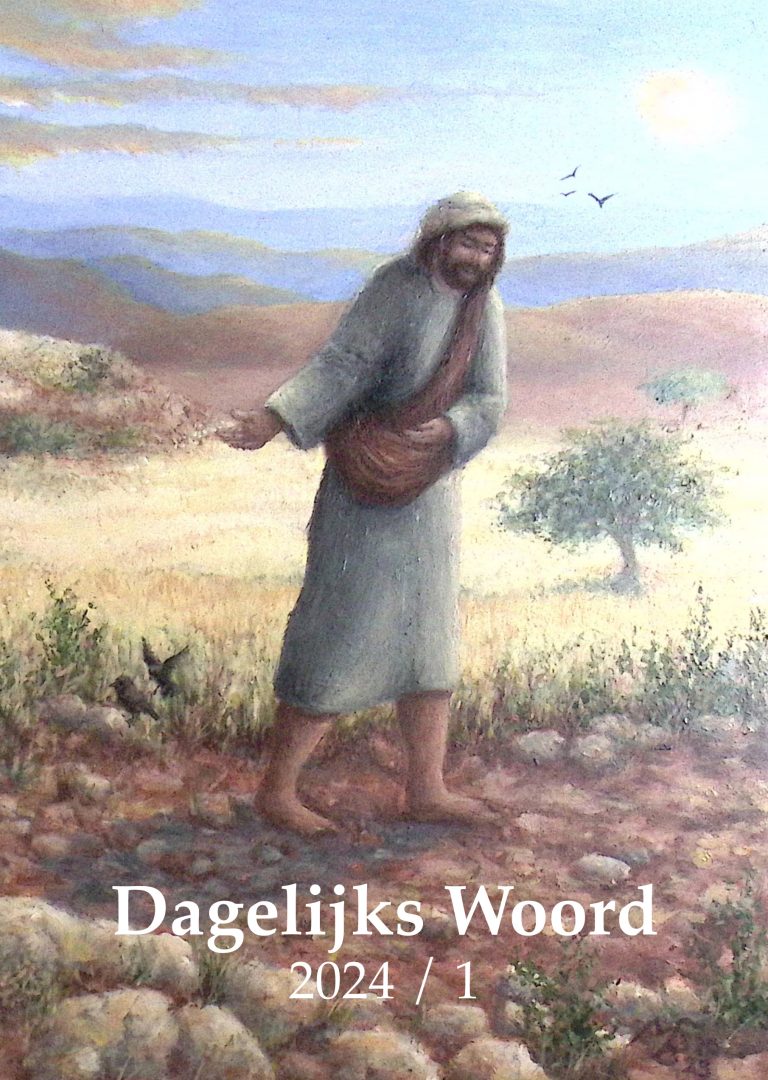Op 7 december 2015 publiceerde paus Franciscus de boodschap voor de 53e Wereldgebedsdag voor de Roepingen op 17 april 2016 (de vierde zondag van Pasen). De boodschap dagtekent 29 november, de eerste zondag van de Advent en van het nieuwe kerkelijk jaar.
De paus sluit in deze boodschap aan bij het heilig Jaar van de Barmhartigheid. Hij hoopt dat iedere gedoopte gedurende het heilig Jaar van de Barmhartigheid de vreugde ervaart om tot de Kerk te behoren en mag herontdekken dat de christelijke roeping voortkomt uit het Volk van God en een gave is van Gods barmhartigheid.
De Kerk, zo schrijft paus Franciscus, is het huis van barmhartigheid en de bodem voor roepingen. Elke roeping is een antwoord op de barmhartige blik van de Heer.
De paus vraagt aandacht voor de rol van de kerkgemeenschap in het roepingverhaal van elke persoon. De roeping van Godswege wordt bemiddeld door de gemeenschap. God roept ons om een onderdeel van de Kerk te zijn, en geeft ons vervolgens een specifieke roeping. We ontdekken dat samen met de broeders en zusters die God ons gegeven heeft. Het is ook gezamenlijk dat we worden geroepen. Deze kerkelijke dynamiek vormt een tegengif tegen bijvoorbeeld onverschilligheid en individualisme. Dit overwinnen we door liefde, omdat we over onze eigen grenzen heengaan en ons leven ten dienste stellen van Gods plan.
Wanneer het duidelijk wordt dat iemand een bijzondere roeping heeft, is het noodzakelijk een passend ‘gevoel’ voor de Kerk te ontwikkelen. Je wordt niet geroepen voor een specifieke regio, groep, of beweging, maar voor de Kerk en de wereld, aldus de paus. Wanneer jongeren ingaan op Gods roep breidt hun kerkelijke horizon zich uit en leren ze de verschillende charismata binnen de Kerk te overwegen om tot een objectiever onderscheid van de eigen roeping te komen. De kerkgemeenschap is het thuis en de familie van de geroepene. Tijdens hun roepingentraject leren ze hun broeders en zusters kennen die andere paden dan zijzelf volgen en wordt de band binnen de gemeenschap versterkt.
Roepingen groeien binnen de Kerk. Daarom dienen kandidaten in hun vormingsproces de Kerk beter te leren kennen. Paus Franciscus doet hiertoe enkele suggesties zoals een missionaire stage in gezelschap van een goede catechist, het verblijf in een kloostergemeenschap om de contemplatieve dimensie van het geloof te leren kennen en het vergezellen van een parochiepriester tijdens zijn pastoraal werk om ervaring op te doen in de zielzorg. De kerkelijke gemeenschap blijft de plaats waarin geroepenen hun vorming ontvangen.
De Kerk steunt ook de geroepenen. Na het aangaan van een definitief engagement is het roepingverhaal immers niet ten einde, maar gaat verder in de bereidheid te dienen, te volharden en zich voortdurend te laten vormen. Degene die zijn leven aan de Heer heeft gewijd, is bereid de Kerk te dienen waar hij of zij nodig is. Hij laat zich hierbij inspireren door Paulus en Barnabas die op missiereis gestuurd werden door de heilige Geest en de gemeenschap van Antiochië. Na het volbrengen van hun opdracht keerden ze terug naar diezelfde gemeenschap van Antiochië en vertelden wat de Heer door hun werk had gerealiseerd. Missionarissen ontvangen steeds steun van de christelijke gemeenschap die als een vaderland veiligheid biedt aan degenen die op pelgrimage zijn naar het eeuwig leven.
Alle gelovigen zijn geroepen de kerkelijke dynamiek van roepingen te onderkennen, zodat de geloofsgemeenschappen nieuwe roepingen kunnen verwelkomen..
Engelse tekst uit de Vatican Information Service (VIS), Vaticaan 7 december 2015
The Church, mother of vocations: theme of the Pope’s message for the 53rd World Day of Prayer for Vocations
“Dear Brothers and Sisters,
It is my great hope that, during the course of this Extraordinary Jubilee of Mercy, all the baptised may experience the joy of belonging to the Church and rediscover that the Christian vocation, just like every particular vocation, is born from within the People of God, and is a gift of divine mercy. The Church is the house of mercy, and it is the ‘soil’ where vocations take root, mature and bear fruit.
“For this reason, on the occasion of the 53rd World Day of Prayer for Vocations, I invite all of you to reflect upon the apostolic community, and to give thanks for the role of the community in each person’s vocational journey. In the Bull of Indiction for the Extraordinary Jubilee of Mercy, I recalled the words of the venerable Bede, describing the call of Saint Matthew: ‘Miserando atque eligendo’. The Lord’s merciful action forgives our sins and opens us to the new life which takes shape in the call to discipleship and mission. Each vocation in the Church has its origin in the compassionate gaze of Jesus. Conversion and vocation are two sides of the same coin, and continually remain interconnected throughout the whole of the missionary disciple’s life.
Blessed Paul VI, in his exhortation Evangelii Nuntiandi, described various steps in the process of evangelisation. One of these steps is belonging to the Christian community, that community from which we first received the witness of faith and the clear proclamation of the Lord’s mercy. This incorporation into the Christian community brings with it all the richness of ecclesial life, particularly the sacraments. Indeed, the Church is not only a place in which we believe, but it is also an object of our faith; it is for this reason that we profess in the Creed: ‘I believe in the Church’.
The call of God comes to us by means of a mediation which is communal. God calls us to become a part of the Church and, after we have reached a certain maturity within it, He bestows on us a specific vocation. The vocational journey is undertaken together with the brothers and sisters whom the Lord has given to us: it is a con-vocation. The ecclesial dynamism of the call is an antidote to indifference and to individualism. It establishes the communion in which indifference is vanquished by love, because it demands that we go beyond ourselves and place our lives at the service of God’s plan, embracing the historical circumstances of His holy people.
On this day dedicated to prayer for vocations, I urge all the faithful to assume their responsibility for the care and discernment of vocations. When the Apostles sought someone to take the place of Judas Iscariot, St. Peter brought together one hundred and twenty of the brethren; and in order to chose seven deacons, a group of disciples was gathered. St. Paul gave Titus specific criteria for the selection of presbyters. Still today, the Christian community is always present in the discernment of vocations, in their formation and in their perseverance.
Vocations are born within the Church. From the moment a vocation begins to become evident, it is necessary to have an adequate ‘sense’ of the Church. No one is called exclusively for a particular region, or for a group or for an ecclesial movement, but rather for the Church and for the world. ‘A sure sign of the authenticity of a charism is its ecclesial character, its ability to be integrated harmoniously into the life of God’s holy and faithful people for the good of all’. In responding to God’s call, young people see their own ecclesial horizon expand; they are able to consider various charisms and to undertake a more objective discernment. In this way, the community becomes the home and the family where vocations are born. Candidates gratefully contemplate this mediation of the community as an essential element for their future. They learn to know and to love their brothers and sisters who pursue paths different from their own; and these bonds strengthen in everyone the communion which they share.
Vocations grow within the Church. In the course of formation, candidates for various vocations need to grow in their knowledge of the ecclesial community, overcoming the limited perspectives that we all have at the beginning. To that end, it is helpful to undertake some apostolic experience together with other members of the community, for example: in the company of a good catechist, to communicate the Christian message; together with a religious community, to experience the evangelisation of the peripheries sharing in the life of the cloister, to discover the treasure of contemplation; in contact with missionaries, to know more closely the mission ad gentes; and in the company of diocesan priests, to deepen one’s experience of pastoral life in the parish and in the diocese. For those who are already in formation, the ecclesial community always remains the fundamental formational environment, towards which one should feel a sense of gratitude.
Vocations are sustained by the Church. After definitive commitment, our vocational journey within the Church does not come to an end, but it continues in our willingness to serve, our perseverance and our ongoing formation. The one who has consecrated his life to the Lord is willing to serve the Church wherever it has need. The mission of Paul and Barnabas is a good example of this readiness to serve the Church. Sent on mission by the Holy Spirit and by the community of Antioch, they returned to that same community and described what the Lord had worked through them. Missionaries are accompanied and sustained by the Christian community, which always remains a vital point of reference, just as a visible homeland offers security to all who are on pilgrimage towards eternal life.
Among those involved in pastoral activity, priests are especially important.In their ministry, they fulfil the words of Jesus, Who said: ‘I am the gate of the sheepfold … I am the good shepherd’. The pastoral care of vocations is a fundamental part of their ministry. Priests accompany those who are discerning a vocation, as well as those who have already dedicated their lives to the service of God and of the community.
All the faithful are called to appreciate the ecclesial dynamism of vocations, so that communities of faith can become, after the example of the Blessed Virgin Mary, like a mother’s womb which welcomes the gift of the Holy Spirit. The motherhood of the Church finds expression in constant prayer for vocations and in the work of educating and accompanying all those who perceive God’s call. This motherhood is also expressed through a careful selection of candidates for the ordained ministry and for the consecrated life. Finally, the Church is the mother of vocations in her continual support of those who have dedicated their lives to the service of others.
We ask the Lord to grant to all those who are on a vocational journey a deep sense of belonging to the Church; and that the Holy Spirit may strengthen among Pastors, and all of the faithful, a deeper sense of communion, discernment and spiritual fatherhood and motherhood.
Father of mercy, Who gave Your Son for our salvation and Who strengthens us always with the gifts of Your Spirit, grant us Christian communities which are alive, fervent and joyous, which are fonts of fraternal life, and which nurture in the young the desire to consecrate themselves to You and to the work of evangelisation. Sustain these communities in their commitment to offer appropriate vocational catechesis and ways of proceeding towards each one’s particular consecration. Grant the wisdom needed for vocational discernment, so that in all things the greatness of Your merciful love may shine forth. May Mary, Mother and guide of Jesus, intercede for each Christian community, so that, made fruitful by the Holy Spirit, it may be a source of true vocations for the service of the holy People of God”.
